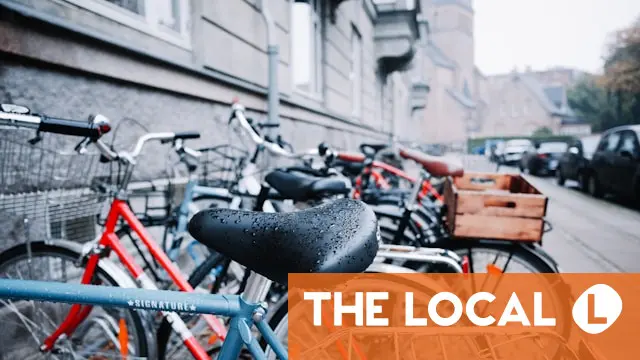Rejsekort app overtakes card on Metro, tenants face long waits for landlord appeals, government slashes data agency’s budget and more news this Thursday.
Rejsekort app used more often than card for first time
The Rejsekort app, which is gradually being phased in to replace the physical card version, is now being used to pay for more journeys on the Copenhagen Metro than the card.
Some 1.7 Metro trips were paid for with the app in August, Metro operator Metroselskabet wrote in a press release. 1.6 million people paid with the card.
Metro passengers are generally more likely to use the app than passengers elsewhere in Denmark, but the card can be used universally on Danish public transport.
The physical card will be decommissioned entirely next year. The app was introduced last year, with developers recently saying they have ironed out a setting which allowed it to collect location data when not in use.
Tenants face long waits for appeals against landlords to be resolved
Tenants can face up to a year to have their cases against landlords resolved by housing tribunal boards (huslejenævn), according to the Danish Tenants’ Association (LLO).
LLO obtained figures from the Danish Authority of Social Services and Housing (Social- og Boligstyrelsen) showing an average case processing time over 100 days in 32 of 80 municipal boards involved in the analysis. There are 98 municipalities in Denmark in total.
Waiting times were over 5 months in 14 municipalities, and four took over a year.
The maximum waiting time should not exceed 100 days because waiting for a decision puts tenants under severe strain, Helene Toxværd, chair of LLO said according to news wire Ritzau.
“For the individual tenant it’s a catastrophe not to know their rent level and risk waiting years, for instance to have a deposit repaid. It creates insecurity and great uncertainty about one’s finances,” she said.
Advertisement
Apartment prices keep rising and set new record
New figures published by real estate media Boligsiden show another increase in apartment prices, with the national average price per square metre for an apartment exceeding 40,000 kroner for the first time.
Copenhagen again leads the way on spiralling housing costs. Apartment prices went up by 1.2 percent on average across the country in August, the equivalent of 12.4 percent over a year. This is considerably short of the 19.3 percent increase in the cost of a flat in Copenhagen over the last year.
This equates to an 80 square-metre apartment in Copenhagen now being worth 800,000 kroner more than it was a year ago, senior economist Jeppe Juul Borre of Arbejdernes Landsbank observed.
“This is a dizzying figure which obviously looks good on paper for owners and their personal wealth, but on the other hand it makes it quite a lot harder for first-time buyers to get on to the property market,” he told Ritzau.
Advertisement
Government makes cutback at data protection agency despite leaks
The government is set to reduce funding for the Danish Data Protection Agency, an independent authority that monitors compliance with data protection laws, Ritzau writes.
That comes as incidents involving leaks of personal data at businesses and authorities occur with increasing regularity.
The 2026 budget reduces funding for the agency by 11 percent or 6.1 million kroner as the agency reports a high backlog of complaints, complex cases and lengthening case processing times.
“This is like removing the barriers at railway crossings. It has to be a mistake,” Jørn Guldberg, a cybersecurity expert with the Danish Society of Engineers (IDA), said to Ritzau.
The government plans to continue cutting the IT security watchdog’s funding through to 2029, by which point nearly a quarter of its budget will be gone.
